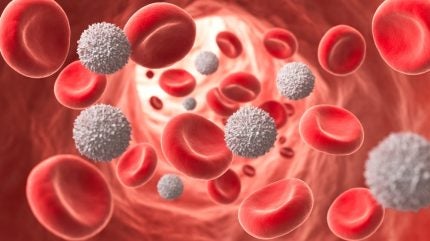

The US Food and Drug Administration (FDA) has declined to approve Rocket Pharmaceutical’s Kresladi (marne-cel), requesting more information about the gene therapy’s manufacturing processes.
The complete response letter (CRL) means Rocket’s therapy, indicated to treat severe leukocyte adhesion deficiency-I, has been delayed again in its path to approval.

Discover B2B Marketing That Performs
Combine business intelligence and editorial excellence to reach engaged professionals across 36 leading media platforms.
Shares in the US biotech dropped by 11% at market open on 28 June when the company announced the news, though they recovered by market close.
Rocket had been anticipating a decision by the FDA by March 2024, but the agency pushed back the review period for Kresladi by three months to allow additional time to mull over supplemental chemistry, manufacturing, and controls (CMC) information.
The FDA’s CRL has now asked Rocket for “limited additional” information related to CMC, as per a 28 June press release.
The delayed approval review also means Rocket will have to wait to receive a priority review voucher, given that Kresladi is being reviewed through the expedited rare paediatric designation programme. Once a therapy is approved through this pathway, the company receives a voucher.

US Tariffs are shifting - will you react or anticipate?
Don’t let policy changes catch you off guard. Stay proactive with real-time data and expert analysis.
By GlobalDataRocket stated it has already met with the FDA to “align on the limited scope of additional CMC information needed to support the approval of Kresladi as quickly as possible.”
Leukocyte adhesion deficiency-I is a rare genetic immune disorder that causes patients to be susceptible to recurrent infections. Those with the condition lack the protein-encoding ITGB2 gene, meaning white blood cells cannot stick to the vascular endothelium or travel to sites of infection. Certain complications from the disease can be life-threatening, with Rocket stating that without a successful bone marrow transplant, survival beyond childhood is rare. The exact incidence of leukocyte adhesion deficiency-I in the general population is unknown.
Rocket reported a 100% overall survival in a global Phase I/II study at 12 months post-infusion of Kresladi. The trial met all primary and secondary endpoints with no treatment-related serious adverse events.
Kresladi works by engineering haematopoietic stem cells taken from the patient with a genetically modified lentiviral vector (LV) to deliver a functional copy of the ITGB2 gene.
Rocket is also awaiting an approval decision on its other gene therapy candidate RP-L102. The LV vector-based gene therapy is under review by the European Medicines Agency to treat the rare bone marrow disorder, Fanconi anaemia.
Cell & Gene Therapy coverage on Pharmaceutical Technology is supported by Cytiva.
Editorial content is independently produced and follows the highest standards of journalistic integrity. Topic sponsors are not involved in the creation of editorial content.





